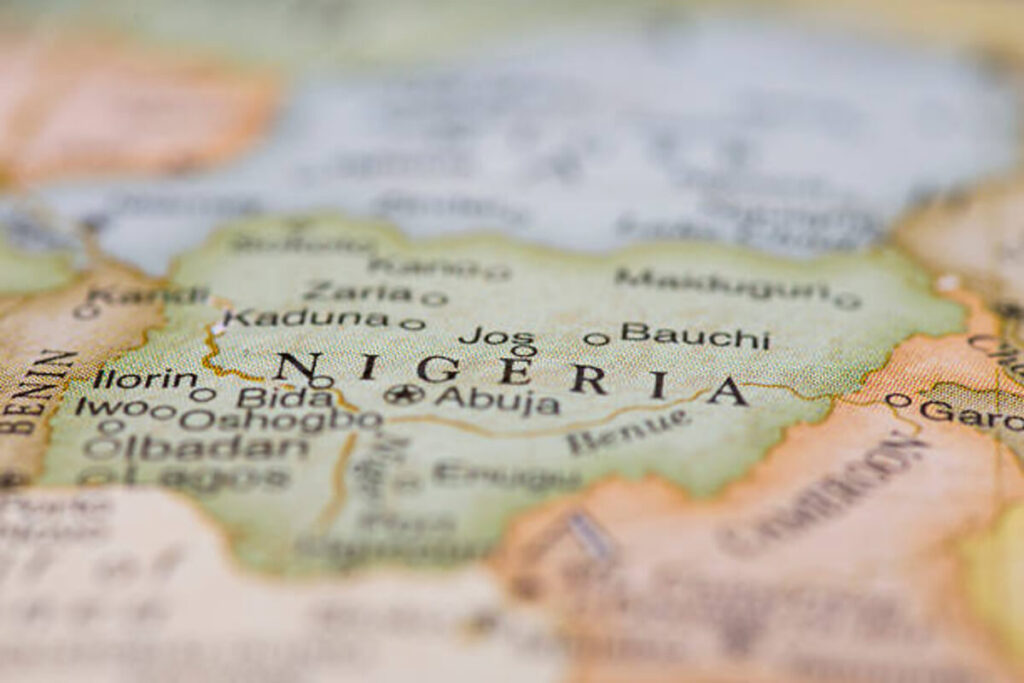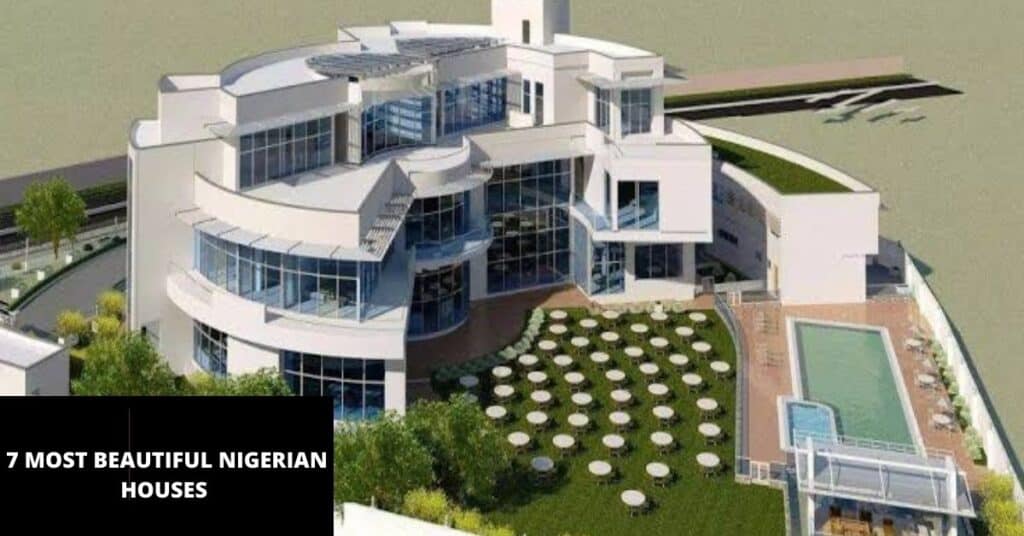Nigeria is one of the best countries in west Africa. There are 36 states in the country. However, the 36 states do not come into existence at once, there were periods when we had only regions before we have today. In the article, you will learn the following things
- Brief History of the creation of the 36 states and their capital.
- Information about each of the 36 states.
The article helps sharpen the knowledge of the current affairs of Nigeria because of the information within.
Also, check out The Richest Banks in Nigeria.
State Creation in Nigeria
Nigeria is a country located in West Africa. It gained independence from British colonial rule in 1960, and since then has had a complex history of state creation.
Before independence, Nigeria was divided into three regions: the Northern Region, the Western Region, and the Eastern Region. Each region had its government and was largely autonomous.
In 1967, the country underwent a military coup, and the new government divided the country into 12 states. This was done in part to reduce the power of the ethnic and regional groups that had dominated politics in the country.
Over the years, the number of states in Nigeria has increased. In 1976, the number of states increased to 19, and in 1987 it increased again to 21. In 1991, the country was divided into 30 states, and in 1996, the number of states increased to 36.
The current division of Nigeria into 36 states is based on several factors, including geography, history, and cultural and ethnic diversity. The states are further divided into local government areas, which have their own elected councils and governments
States and Capitals in Nigeria
Abia State
Capital: Umanhia
Abia State is one of the states in the eastern part of Nigeria and belongs to the southeast geopolitical zone. The state came into existence on the 27th of August, 1991.
The former military head of state General Ibrahim Babaginda created the state from Imo state which was regarded as the Eastern central state together with Anambra. In Abia state, you will find the famous Aba Market, which is one of the popular centers for commercial hubs in Nigeria.
Presently the state has 17 local governments with the major traditional ethnic group being Igbo. The predominant religion in the state is Christianity. The state is rich in culture and history.
Adamawa
Capital: Yola
Adamawa is a state in the northern part of Nigeria which belongs to the northeast geopolitical zone. The state was part of the Gongola state, it was separated from it in 1991, by General Ibrahim Babaginda during this regime as a military head of state.
The predominant religion in the state is Islam but we have a good number of Christians in the state. In terms of ethnic groups, we have many ethnicities and as such the state has high diversity in this area.
We have 21 local governments in the state. Also, in conjunction with the sitting governor, the state is ruled by an Emir, also known as Lamido.
The state is blessed with a large mass of land as it is the eighth state in the country with the highest land mass hence its dependence on agriculture. The majority of the inhabitants are farmers, cattle rearers, or both.
Akwa Ibom
Capital: Uyo
Akwa Ibom is one of the southeastern states in Nigeria and it belongs to the south-south geopolitical zone. The state was part of the cross-river state before the separation to stand independently.
The person behind the separation was General Ibrahim Babaginda. The separation happened on the 23rd of September, 1987. In Akwa-Ibom there are 31 local governments.
The major ethnic groups in the state are the Annang, Oron, and Ibibio. However, we have other ethnicities in the state but they are not predominant as the three aforementioned. Also, the predominant knowledge in the state is Christianity.
Furthermore, the major economic activities in the state are trading, fishing, farming, and formal jobs.
Anambra
Capital: Awka
Anambra was formed on August 27, 1971, and it is part of the states in the southeastern part of Nigeria. There are 21 local governments in the state.
The people of Anambra are predominantly the Igbo ethnic group. The state is one of the most populous in the country ranking at number eight. Christianity is the major predominant group in the state although we have diverse religious groups in the state.
The economic activities in the area are majorly trading. Onitsha, one of the biggest and most popular markets, gives the state a major boost when it comes to the generation of revenue from commercial activities.
The state is blessed with natural resources of which the crude oil deposits are part of it.
Bayelsa
Capital: Yenagoa
Bayelsa State is a state in Nigeria. It is located in the Niger Delta region and is known for its oil and natural gas resources. The state was created in 1996 and its capital is Yenagoa. The state is named after the Bayelsa River, which flows through it.
The main languages spoken in Bayelsa State are Ijaw, Urhobo, and English.
Fishing, farming, palm oil milling, and lumbering are the major economic activities in the region.
Also, check out Delivery Companies in Nigeria.
Bauchi
Capital: Bauchi
Bauchi came into existence when the northern central state was created in 1976. It is part of the northern states and belongs to the northeast geopolitical zone. There are 20 local governments in Bauchi.
We have 55 ethnicities in the state and over 15 languages spoken across the different tribes in the state. However, there is a high cultural affinity between these groups.
The inhabitants of Bauchi are predominantly farmers and cattle rearers. Also, there is a rich history and love for arts and crafts which include beautiful embroidered fiber crafts, caps, and decorated calabashes. Furthermore, pottery and blacksmith professions are common among the people of Bauchi.
Benue
Capital: Makurdi
Benue belongs to the states in the North central geopolitical zone in Nigeria. Also, it is one of the states in the middle belt. The creation of the state came in 1976 and the name derived from the famous Benue River. The state has 23 local governments
There are close to 15 ethnic groups in the state. The majority ethnic group in the state includes the Tiv, Idoma, and Igede. We have more than 19 different languages spoken across the whole ethnic group in the state.
Benue is blessed with fertile lands for agriculture and when it comes to food production, the state is one of the major contributors in the country. The slogan “food basket of the nation” says it all.
Borno
Capital: Maiduguri
Borno is one of the states derived from the dissolution of the northeastern states in 1967. It is part of the states in the north-east and has local governments
The major ethnic group in the states is the Kanuri group. There are over 15 languages spoken across the different tribes in the state
The inhabitants of the state are popular for their involvement in farming and cattle rearing.
Cross River
Capital: Calabar
Cross River is a state in southeastern Nigeria created by Yakubu Gowononn May 27, 1967, It is located in the Niger Delta region and close to Enugu and Abia States
The major ethnic groups in the state include the Efik, Annang, and Ejagham. There are 18 local governments in the state.
Cross River is home to several tourist attraction centers which include the Obudu Cattle Ranch, the Drill Ranch, and the Cross River National Park,
Delta State
Capital: Asaba
Delta is a state in southern Nigeria. It is located in the Niger Delta region and is known for its oil and gas resources. the state is made up of 25 local government areas.
The state is home to several ethnic groups, including the Urhobo, Isoko, Itsekiri, and Ika. The state is known for its rich cultural heritage, with several traditional festivals and events being celebrated throughout the year.
Delta state is also home to several tourist attractions, including the Olu Palace, the Osse River, and the Forcados Terminal.
Ebonyi
Capital: Abakaliki
Ebonyi State came into existence in 1996, and it is located in the southeastern region of Nigeria, and it is bordered by Abia, Imo, Anambra, Enugu, and Benue states.
The state is predominantly inhabited by the Igbo people. The ethnic groups include Igbo, Ezza, and Afikpo across the 12 local governments in the state.
The main economic activities in the state include agriculture, trade, and industry. Some of the major crops produced in the state include yams, cassava, maize, rice, and vegetables. In addition, Ebonyi is also known for its large deposits of limestone and salts
Edo State
Capital: Benin
Edo State is one of the states in southern Nigeria occupying the south-south geopolitical zone. It was created in 1991 when it was split off from Bendel State. The state has 18 local governments under its region.
The state is known for its rich cultural heritage, particularly in art and crafts. Edo State has a rich history dating back to the pre-colonial period. The state was once the center of the powerful Kingdom of Benin, which was ruled by the Oba (king) of Benin.
The Kingdom of Benin was one of the oldest and most highly developed states in Africa, and it played a significant role in the trans-Atlantic slave trade
The predominant languages spoken in the state are Edo and Bini while the major ethnic groups are Bini, Etsako, Esan, Owan, and Akoko Edo.
Ekiti
Capital: Ado-Ekiti
Ekiti State is a state in southwestern Nigeria, carved in 1996 from part of the old Ondo State.
The main economic activities in the state include agriculture, trade, and manufacturing. The state is known for its production of crops such as yam, cassava, and maize, as well as its rich forestry resources.
Enugu
Capital: Enugu
Enugu State is a state in southeastern Nigeria. It is located in the region known as the Niger Delta and was created in 1991 from part of the old Anambra State by General Ibrahim Babaginda. There are 14 local governments in the state.
The main economic activities in the state include agriculture, trade, and mining, with the state being a major producer of coal. Enugu State is also known for its beautiful landscapes and tourist attractions, such as the Nike Lake Resort and the Ngwo Pine Forest Reserve.
Gombe State
Capital: Gombe
Gombe State is a state located in northeastern Nigeria. It was created in 1996 from part of the former Bauchi State. Yobe, Bauchi, Taraba, and Adamawa State are close neighbors to the state. The population of Gombe State is about 2.4 million people.
The main tribes in the state are the Fulani, Hausa, and Kanuri. The main industries in the state include agriculture, forestry, and mining.
The main crops grown in the state include rice, millet, sorghum, and maize. The state is also home to several national parks and wildlife reserves, including the Gombe Stream National Park, which is known for its population of chimpanzees.
Imo
Capital: Owerri
Imo State, one of the most established states in the southeastern region of Nigeria was created in 1976 from part of the former East-Central State.
The state is bordered by Abia State to the east, Anambra State to the west, Ebonyi State to the southeast, and Rivers State to the south.
Igbo tribe is the predominant tribe in the region with tribes such as Ibibio and Efik being the minorities. Also, the Igbo language is the major language in the region.
The main industries in the state include agriculture, manufacturing, and oil and gas. The main crops grown in the state include yam, cassava, maize, and oil palm.
Jigawa State
Capital: Duste
Jigawa State is a state located in north-central Nigeria. It was created in 1991 from part of the former Kano State. It is close to Kano, Yobe State, and Borno State. There are 27 local governments in the state.
The main tribes in the state are the Hausa and Fulani. Agriculture, forestry, and mining are the major occupations of the residents of Jigawa. The main crops grown in the state include sorghum, millet, rice, and maize. Islam is the predominant religion in the state.
Hadejia-Nguru Wetlands and the Kirfi Saltworks Game Reserve are one of the top tourist attractions in the state.
Kaduna
Capital: Kaduna
Kaduna State is a state located in north-central Nigeria. It was created in 1967 from part of the former Northern Region. There are 23 local governments in the state.
Hausa, Fulani, and Birom are the major ethnic groups in the state. The majority of the people in Kaduna are Muslims while we have a small percentage of the population is Christian. However, the percentage is still high compared to other Northern States.
Kaduna residents are famously known for their interest in agriculture, manufacturing, and oil and gas.
Kano
Capital: Kano
Kano State is a state located in northern Nigeria. It is the capital of the state. The state is one of the most populous states in Nigeria, with a population of over 9 million people. We have 44 local governments in the state making it the state with the largest number of local governments.
The state is predominantly Muslim, and the official language is Hausa.
The economy of Kano State is based on agriculture, trade, and manufacturing. The state is a major producer of grains, such as millet, sorghum, and maize. It is also a major producer of groundnuts, cotton, and leather goods. The state is known for its handicraft industry, which produces a variety of items such as baskets, pottery, and textiles.
Katsina
Capital: Katsina
Katsina State is a state located in the northwest region of Nigeria. It is the home of the Hausa-Fulani ethnic group.
The state is known for its production of cotton, groundnuts, and other agricultural products.
Also, check out Nigeria’s Geopolitical Zones.
Kebbi
Capital: Birnin Kebbi
Kebbi State is a state located in northwestern Nigeria. It was created in 1991 from part of Sokoto State. The state is named after its capital city, Birnin Kebbi.
The state is predominantly Muslim, most people speak Hausa as their local dialect.
The people of Kebbi are actively involved in agriculture, with major crops including rice, maize, millet, sorghum, and wheat. The state is also a major producer of livestock, including cattle, sheep, and goats.
In addition to agriculture, the state has a growing industrial sector, with industries involved in the production of textiles, cement, and other products.
Kogi
Capital: Lokoja
Kogi is a state located in central Nigeria. The state capital is Lokoja, and the state is home to a diverse population of over 4 million people.
There is diversity in the kinds of ethnic groups in the region. Yoruba, Nupe, Igbira, and Bassa are the major ethnic groups in the state
The state is known for its agricultural production, including yams, cassava, rice, and other crops. It is also home to several minerals, including limestone, coal, and lead. The popular Ajaokuta steel is located in the region.
Kwara
Capital: Ilorin
Kwara is a state in north-central Nigeria. It was created in 1967 when the federal government divided the old Northern Region into six states. Kwara is bordered by the states of Niger to the north, Kogi to the east, and Ekiti to the south.
The state is predominantly Muslim and is known for its rich cultural heritage. Some of the major industries in Kwara include agriculture, manufacturing, and trade.
Lagos
Capital: Ikeja
Lagos is a state located in the southwestern region of Nigeria. It is the most populous state in Nigeria. There are 20 local governments in the state.
The state is a major economic hub, with a large port, an international airport, and a significant financial sector.
It is also a major tourist destination, with a variety of cultural and recreational attractions.
Nassarawa
Capital: Lafia
Nassarawa is a state in central Nigeria. It was created in 1996 and is located in the north-central region of the country.
There are over 20 different ethnic groups living there with Islam being the predominant religion.
Some of the major industries in Nassarawa State include agriculture, mining, and forestry. The state is home to several natural attractions, including the Mambilla Plateau and the Maraba-Mangoro Waterfalls.
Niger
Capital: Minna
Niger is a state in western Nigeria. It was created in 1976 and is located in the north-central region of the country. The capital of Niger State is Minna.
The state has a rich cultural heritage and diverse population, with over 20 different ethnic groups living there. Some of the major industries in Niger State include agriculture, forestry, and mining.
Ogun
Capital: Abeokuta
Ogun State is a state in southwestern Nigeria. It is bordered by Lagos State to the south, Oyo and Osun states to the north, and Ondo State to the east. The state’s capital is Abeokuta, which is located in the north of the state.
Popularly known for its large agricultural industry, with crops such as cocoa, rubber, and palm oil being major exports. The state is also home to several industries, including manufacturing, construction, and energy.
Some notable landmarks in Ogun State include Olumo Rock, a popular tourist destination located in Abeokuta, and the Yewa division, which is known for its natural beauty
Ondo
Capital: Akure
Ondo State is located in southwestern Nigeria. It was created in 1976 when the former Western State was divided into Ondo, Ogun, and Lagos states. The capital of Ondo State is Akure.
The state is named after the Ondo Kingdom, which was a Yoruba kingdom that existed in the area in pre-colonial times. The kingdom was ruled by the Alaafin of Ondo, who was a powerful monarch.
Ondo State has been an important center of economic and cultural activity in Nigeria. It is known for its oil and gas resources, as well as its rich cultural heritage.
Osun
Capital: Osogbo
Osun is a state in southwestern Nigeria. It was created in 1991 by the former Oyo State.
The capital of Osun is Osogbo, and the state is known for its beautiful natural landscapes and cultural attractions, including the Osun-Osogbo Sacred Grove, The state is named after the Osun River, which is revered by the Yoruba people as a deity.
The population of Osun is predominantly Yoruba
Oyo State
Capital: Ibadan
Oyo State is a state in southwestern Nigeria. It was created in 1976 when the former Western State was divided into Oyo, Ogun, and Lagos states. The capital of Oyo State is Ibadan, which is also the largest city in the state.
Oyo State is named after the Oyo Empire, which was a powerful Yoruba kingdom that existed in the area in pre-colonial times.
Oyo State is known for its agricultural resources, including cocoa, rubber, and timber. The state is also home to several universities and other educational institutions, as well as several tourist attractions.
Plateau
Capital: Jos
Plateau State is a state located in central Nigeria. It is named after the Jos Plateau, which is a highland region located in the center of the state. The state is known for its rich cultural diversity, with over 200 different ethnic groups living within its borders.
Plateau State is also home to several national parks and other protected areas, including the Jos Wildlife Park and the Yankari National Park. The state is known for its agricultural production, with crops such as maize, sorghum, and wheat being grown in the region
Rivers State
Capital: Port Harcourt
Rivers State is a state in Nigeria located in the southeastern region of the country, on the coast of the Gulf of Guinea. It is one of the 36 states that make up Nigeria and its capital is Port Harcourt.
Rivers State is known for its rich oil and gas resources, and it is an important contributor to Nigeria’s economy. The state is also home to a diverse population and several cultural and historical attractions.
Also, check out The Largest States in Nigeria.
Sokoto
Capital: Sokoto
Sokoto State is a state located in the northwest region of Nigeria. It was created in 1976 and its capital is the city of Sokoto. The state is named after the city of Sokoto, which was the capital of the Sokoto Caliphate, a 19th-century Islamic empire that controlled much of what is now northern Nigeria.
The state has a predominantly Muslim population and is known for its rich history and cultural traditions. The main economic activities in the state include agriculture, trade, and handicrafts
Taraba
Capital: Jalingo
Taraba is a state in Nigeria, located in the northeast region of the country. The capital of Taraba is Jalingo. The state was created in 1991 by the former Gongola State.
The name “Taraba” is derived from the Taraba River, which flows through the state. The state is known for its diverse culture, with many different ethnic groups living there, including the Jukun, Tiv, Ijaw, and Chamba.
The state is also home to the Mambilla Plateau, a popular tourist destination known for its beautiful scenery and rich cultural history. Taraba has a rich history, with evidence of human settlement dating back to the Paleolithic era.
The state has a long tradition of trade and commerce, with many different cultures and civilizations passing through over the centuries
Yobe
Capital: Damaturu
Yobe is a state in Nigeria, located in the northeast region of the country. The capital of Yobe is Damaturu. The state was created in 1991 from parts of the Borno and Gombe states.
The name “Yobe” is derived from the Kanuri word “yowbe”, meaning “dry land”. The state is known for its arid climate, with temperatures often reaching over 40°C during the dry season.
The state is predominantly Muslim and Hausa is the dominant language. The state is home to several important agricultural products, including groundnuts, cotton, and tobacco.
Yobe has a rich history, with evidence of human settlement dating back to ancient times. The state has a long tradition of trade and commerce, with many different cultures and civilizations passing through over the centuries.
Zamfara
Capital: Gusau
Zamfara is a state in northwest Nigeria. It is known for its rich deposits of gold, and it is also a major producer of cotton, groundnuts, and tobacco. The state capital is Gusau.
The official language is Hausa, and the main religions are Islam and traditional African religions. The population of Zamfara is predominantly rural, and the economy is based on agriculture and mining. The state is also home to several national parks and wildlife reserves.
Abuja FCT (Federal Capital Territory)
Abuja is the capital city of Nigeria, located in the central region of the country. It was founded in the late 1970s and officially became the capital of Nigeria in 1991, replacing Lagos as the capital. Abuja is known for its modern architecture and is home to many government buildings and embassies.
The city is also a major economic hub and is home to several universities and research institutes. Abuja has a population of over 3 million people and is home to a diverse population.
The city is located in a region known for its savannah grasslands and rocky hills and is known for its hot, dry climate. Some popular tourist attractions in Abuja include the Abuja National Mosque, the Zuma Rock, and the Millennium Park.
Final Notes on
Nigeria is a blessed country with great people, weather, land mass, and natural resources. The nation is regarded as one of the top countries in Africa hence why they gave it the name ” Giant of Africa.
We examine a bit of the history of Nigeria looking at how the states in the country came into existence and looking at each one of the 36 states too.
Before you go, check out The Largest Countries in the World.








Pingback: Nigeria Driver's License: Getting It and How Much it Costs